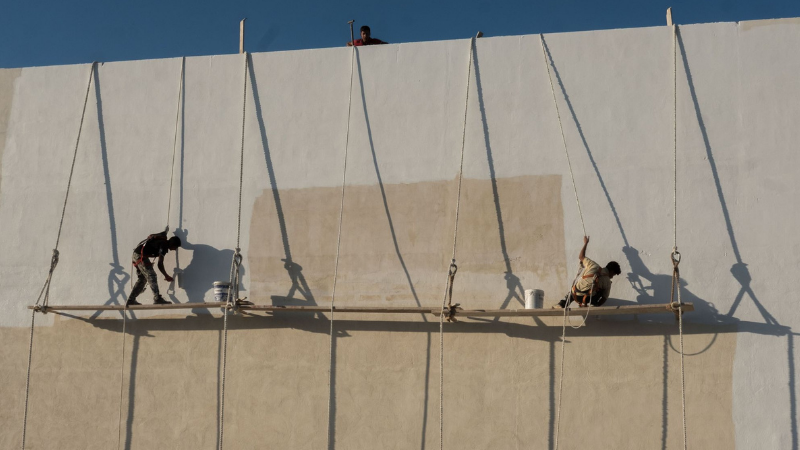A petition to the EU Parliament’s Committee on Petitions has led to further scrutiny of the Maltese construction industry’s health and safety protocols, with a hearing earlier this week determining that further questions must be asked of Malta’s health and safety regime.
The petition, filed last year by a British citizen named Christopher Stott, called for an investigation into health and safety in Malta’s construction industry to be conducted by the EU Parliament due to the systemic lack of health and safety equipment for construction workers, leading to fatal accidents.
Stott’s request was formally declared admissible by the Committee on Petitions in August of last year. In a hearing held on Tuesday, it was concluded that the EU Commission will be contacting “the responsible national authorities in order to obtain more information to be able to better assess the situation”.
While Malta’s Occupational Health and Safety Authority (OHSA) has often defended its track record by pointing towards an overall improvement in health and safety standards since the authority was first established in the early 2000s, the never-ending stream of reported workplace accidents and fatalities effectively shows that the authority is unable, for whatever reason, to enforce adequate health and safety practices on the workplace.
In its submitted replies, the EU Commission outlined the several EU directives that regulate health and safety protocols at the workplace.
The main thrust of the EU Commission’s argument is that while it ultimately remains the member state’s prerogative to implement these protocols, the petitioner’s allegations will nonetheless be investigated “in light of the apparent gravity of the information” he submitted.
EU legislation on workplace health and safety provides generic guidelines on risk prevention, outlining that member states must ensure adequate supervision occurs on-site and that the drawing up of risk assessment reports should be carried out if and when aggravated risk is identified.
The problems plaguing Malta’s construction industry have been an open secret for years, with images of workers dangling from dubious scaffolding or sometimes even just a plank of wood regularly doing the rounds on social media. Worse still, none of the 280 workplace accidents which did lead to a court case in 2013 – 2020 led to any actual jail time for contravening employers, enforcing an air of general impunity and little to no consequences for offending behaviour.

A photo showing construction workers on a site in Malta.
In particular, the case of Jaiteh Lamin, the Ghanaian man whose employer dumped him on a roadside in Selmun on 28 September after he was injured in an accident at his workplace, highlighted the callousness with which third-country nationals working in the construction sector are treated.
Laiteh’s case also served as an example of the way in which operators in the construction industry attempt to circumvent their accident reporting obligations, further undermining efforts from both local and international authorities seeking to supervise sites.
When such an accident occurs on-site, contractors and site supervisors alike are obliged to immediately call both the police as well as the OHSA.
However, industry sources previously told The Shift that contractors and developers alike are known to skirt this obligation, often resorting to dropping off employees at clinics or a hospital while coercing them into not sharing information about the accident itself.
One example of this which The Shift was able to document was the story of a Maltese worker named Joseph Spiteri who suffered a potentially debilitating hand injury in 2021.
When the accident occurred, Spiteri was rushed to a clinic in Rabat, with his partner being left with no choice but to pick him up and rush him to hospital because Spiteri’s injury required more intensive treatment than could be offered in the clinic.















This is not on the mafia-government’s agenda – and never will be.